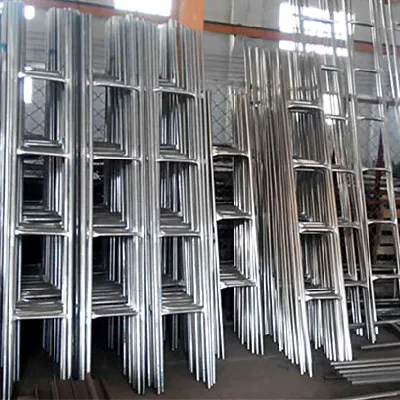loading...
- No. 9, Xingyuan South Street, Dongwaihuan Road, Zaoqiang County, Hengshui, Hebei, China
- admin@zjcomposites.com
- +86 15097380338
- Welcome to visit our website!
Designing Efficient Liquid Filtration Systems for Enhanced Performance and Reliability in Industrial Applications
Liquid Filter Vessel A Comprehensive Overview
In various industrial applications, the need for effective filtration of liquids is paramount. Whether it’s for the chemical, food and beverage, pharmaceutical, or water treatment industries, maintaining the purity and quality of liquid products is essential for operational efficiency and consumer safety. This is where a liquid filter vessel plays a vital role.
A liquid filter vessel is a robust equipment designed to remove unwanted contaminants from liquids before they are used in downstream processes or before they are released into the environment. The design and functionality of these vessels can vary widely depending on the specific requirements of the application.
Design and Construction
Liquid filter vessels typically feature a cylindrical shape and are often constructed from durable materials such as stainless steel, which can withstand high pressures and corrosive environments. The design can include features such as manways, nozzles for liquid inlet and outlet, and inspection ports for regular maintenance.
The vessel houses a filtration medium that can vary based on the type of contaminants being targeted. Common filtration methods include mechanical filtration, where particles are physically removed from the liquid through porous media, and membrane filtration, which utilizes semi-permeable membranes to separate contaminants from liquids.
Types of Filtration Media
The choice of filtration media is critical for the effectiveness of the liquid filter vessel. Fabric filters, cartridge filters, and microfiltration membranes are commonly used, each suited for specific applications. For instance, fabric filters can effectively capture larger particles, while membrane filters are ideal for finer contaminants, including bacteria and viruses.
In addition to the filtration media, the configuration of the vessel can also impact performance. Some designs incorporate multi-stage filtration processes, allowing for a progressive removal of contaminants, which can enhance the quality of the final product.
Applications
liquid filter vessel

Liquid filter vessels find applications across various industries
1. Chemical Processing In chemical manufacturing, purity is crucial. Filter vessels remove particulates and unwanted chemical residues from process streams, ensuring that the final products meet stringent quality standards.
2. Food and Beverage Industry Ensuring the cleanliness of water and other liquids used in food production is vital. Filter vessels help maintain the safety and quality of food products while ensuring compliance with health regulations.
3. Pharmaceuticals In the pharmaceutical sector, filtration is critical for preventing contamination of sterile products. Liquid filter vessels are indispensable in maintaining the integrity of drugs and medical supplies.
4. Water Treatment In municipal and industrial water treatment facilities, filter vessels are used to remove sediment, algae, and other impurities from water, making it safe for consumption and discharge.
Maintenance and Operation
Proper maintenance of liquid filter vessels is essential to ensure optimal performance. Regular inspection and replacement of the filtration media can prevent clogging and maintain flow rates. Additionally, operators should monitor the pressure differential across the filter to determine when a backwash or replacement is necessary.
Conclusion
In conclusion, liquid filter vessels are essential components in many industrial processes that require the filtration of liquids. Their design, choice of filtration media, and applications highlight their importance in ensuring product quality and compliance with safety regulations. As industries continue to evolve, the demand for efficient and reliable liquid filtration solutions will undoubtedly grow, further establishing the prominence of liquid filter vessels in modern manufacturing and processing systems.
-
GRP Structures: The Future of Lightweight, High-Performance EngineeringNewsJun.20,2025
-
FRP Water Tank: High-Performance Storage for Corrosive and Clean Water SystemsNewsJun.20,2025
-
FRP Square Tube: The New Industry Standard for Chemical and Structural ApplicationsNewsJun.20,2025
-
FRP Pultruded Profiles: The Ultimate Choice for Lightweight Structural StrengthNewsJun.20,2025
-
FRP Handrails: The Safer, Smarter, and Stronger Choice for Modern InfrastructureNewsJun.20,2025
-
FRP Grating: The Smart Solution for Durable, Lightweight Industrial FlooringNewsJun.20,2025
-
Why Choose a Galvanized Water Tank for Your Storage NeedsNewsMay.21,2025
